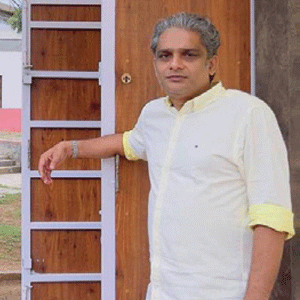
India's recycling sector and waste management are influenced by governmental policies such as the Solid Waste Management Rules 2016 (amended in 2021 and 2022) and the Plastic Waste Management Rules, which urge sustainable practices. For instance, the Extended Producer Responsibility (EPR) regime requires all producers, importers, and brand owners to take responsibility for plastic packaging waste through recycling or disposal under the watch of the Central Pollution Control Board. Additionally, various states have regional approaches, such as the Clean Kerala Initiative, aimed at improving solid waste management at the local level.
However, customers face diverse challenges like handling unsorted garbage, cost implications of traditional waste treatments, environmental issues relating to poisonous emissions, and the need for scalable solutions that ensure zero residual waste sustainability. CIECO is a technology provider pioneering innovative solutions in waste management, focusing on converting mixed municipal solid wastes into valuable circular polymers. With a commitment to sustainability and zero residual waste, the firm offers scalable solutions tailored to diverse waste management challenges. Founded in 2017 in Mysore by Purandar, who has a background in science, engineering, and creativity, CIECO embarked on a mission to revolutionize waste management.
Driven by Purandar's conviction to develop transformative technologies, the team faced numerous challenges during the R&D phase, including technical hurdles and funding constraints.
Through persistence, advanced research, and collaboration with leading scientists and engineers, the startup developed a patented waste conversion technology. “Since its inception, the company has achieved significant milestones, including patenting the technology in India and advancing the global patent process,” says Purandar. Co-founders Vinu Jose and Rafeek Rahman bring decades of expertise in operations, business development, strategy, and scale-up, driving the business towards its goals.
Revolutionizing Waste into Resources
CIECO offers a range of innovative products and services designed to address waste management challenges effectively. The core technology involves a proprietary process that converts unsegregated municipal solid waste into high-value circular polymers, eliminating the need for waste segregation and ensuring zero residual waste, thus preventing landfill. These polymers serve as valuable raw materials for various industries, promoting a circular economy. Through public-private partnerships and policy advocacy, the company collaborates with governments and institutions to drive policy changes and promote responsible waste management practices.
CIECO specializes in innovative, sustainable waste management, converting unsegregated municipal solid waste into valuable circular polymers
CIECO stands out in the waste management sector because, unlike many traditional systems, its process generates no toxic emissions and uses no water, ensuring environmental safety. Additionally, the company provides comprehensive waste management solutions tailored to different regions and waste types, including scalable and adaptable systems for municipalities and businesses. The firm emphasizes cost-effectiveness, offering affordable waste management solutions for municipalities and businesses of all sizes.
The company’s commitment to sustainability is evident in its mission to redefine waste as a resource, integrating this principle into daily operations and long-term strategic planning. With a focus on innovation, CIECO’s proprietary technology and ongoing R&D efforts ensure continuous improvement and adaptation to emerging waste management challenges, positioning the company as a leader in sustainable solutions. CIECO plans to expand its technology to more municipalities and businesses across India, focusing on regions with significant waste management challenges.
The company aims to enter international markets, starting with areas facing similar issues, by forming global partnerships. Additionally, the firm will build operational capacity by establishing more processing facilities and strengthening its supply chain for large-scale implementation.
We use cookies to ensure you get the best experience on our website. Read more...